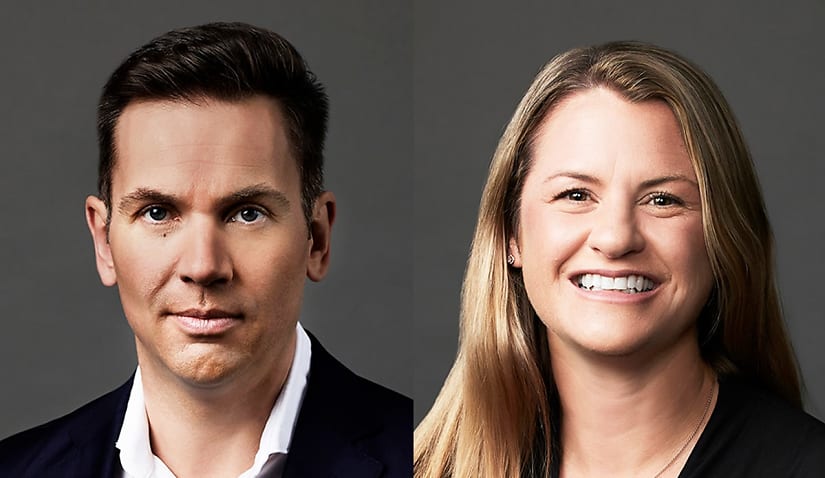In today’s dynamic professional arena, the legal profession is undergoing a notable transformation in workplace culture, with leaders of Hazelbrook Legal highlighting a shift towards prioritising the balance between clients’ demands and employee wellbeing.

Hugh Griffin is the co-founder and managing partner of Hazelbrook Legal, which won the Boutique Diversity Firm of the Year category at the 2023 Women in Law Awards. He also received the Lawyers Weekly Partner of the Year award for corporate and financial services in 2022. Lucy Adamson is a partner at the firm and was a finalist for the Partner of the Year award for financial services in 2023.
Adamson highlighted how long gone are the days when junior lawyers were expected to sacrifice their wellbeing and personal lives.
“The bottom line is the hours that we worked as junior lawyers were next level. I don’t think we’re in a market where people are prepared to work like that, nor should they,” she said.
She stressed that this point incentivises young lawyers to remain with the firm, emphasising that effective staff retention is crucial for fostering an enriching work culture.
As a leader in her law firm, Adamson explained how they implement measures to encourage young lawyers to remain within the firm.
“The junior lawyers we have in our team are becoming more senior; they have a wealth of knowledge, and they’ve been exposed to such growth.
“It’s a terrible shame if you lose a person at that point because you couldn’t spend the time to support them kind of and support their circumstances for whatever reason,” she said.
In reflecting on the evolving landscape of the legal workplace, Adamson highlighted staff retention as one of the primary challenges facing firms. She emphasised the importance of firms recognising their pivotal role in nurturing and retaining skilled professionals.
“I think in terms of market shifts, that was one of the biggest challenges in top-tier firms. Staff retention and having good staff for any length of time, like longevity, like that five-year mark.
“And I just think that the working environment that we started in, you can’t work like that in 2024, so something’s got to change,” Adamson said.
Griffin underscored the significant challenge that firms face in navigating demanding client expectations alongside the evolving needs of legal professionals, which has placed substantial strains on their workplace culture.
“I think the challenge for the legal industry, both big and small firms, is that client expectations have not changed. When you talk about the very complex work for large clients and large corporate financial services work that we do, we’re often facing off against the big firms. Those clients have very high expectations justifiably and matters,” he said.
While clients expect top-notch service, Griffin expressed how it is incumbent upon firms to meet this expectation without subjecting their employees to undue stress and burnout.
“You’ve got this tension between the expectations, which are the same, but you’ve got a cohort of lawyers who just won’t allow themselves to be flogged like we did. And as Lucy said, that’s correct; they shouldn’t do that.
“I think expectations have rightly changed, and that was an improvement the industry had to make. But it’s how to balance that. Still, deliver for the clients, but deliver in a way that, and that’s not to say that these lawyers aren’t working hard,” he said.
Griffin emphasised that the idea of success in the legal profession requiring the sacrifice of all semblance of work/life balance is now rightly being questioned to align with today’s workplace culture.
“You can still work hard, but you shouldn’t have to give over everything to the job in order to actually be successful. And that’s what we’re trying to deliver on,” he said.